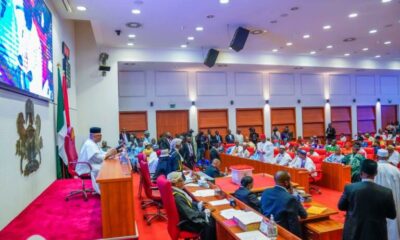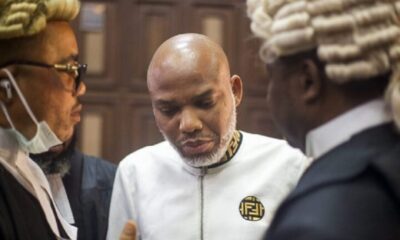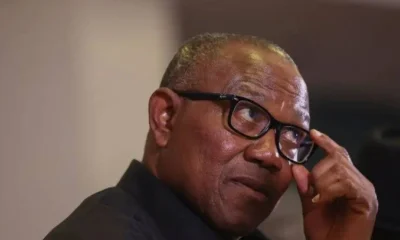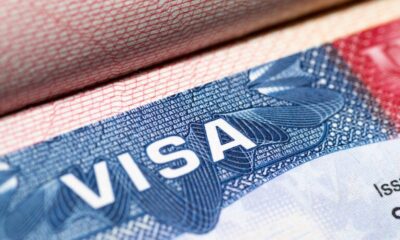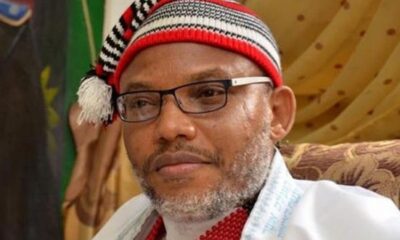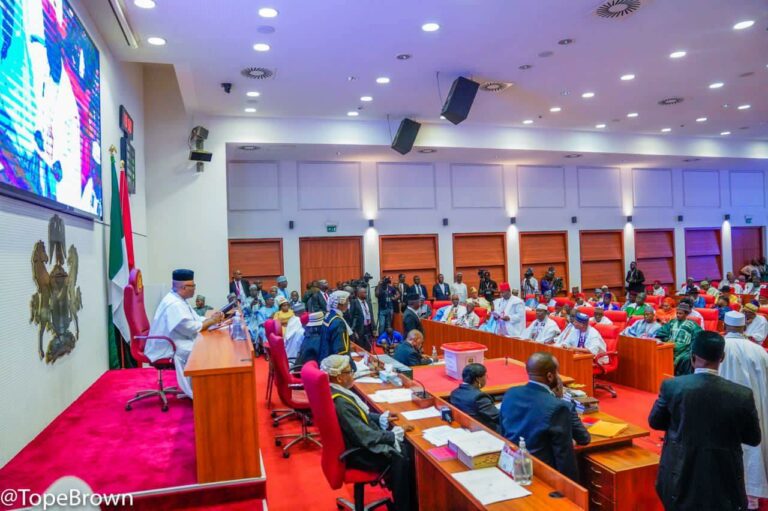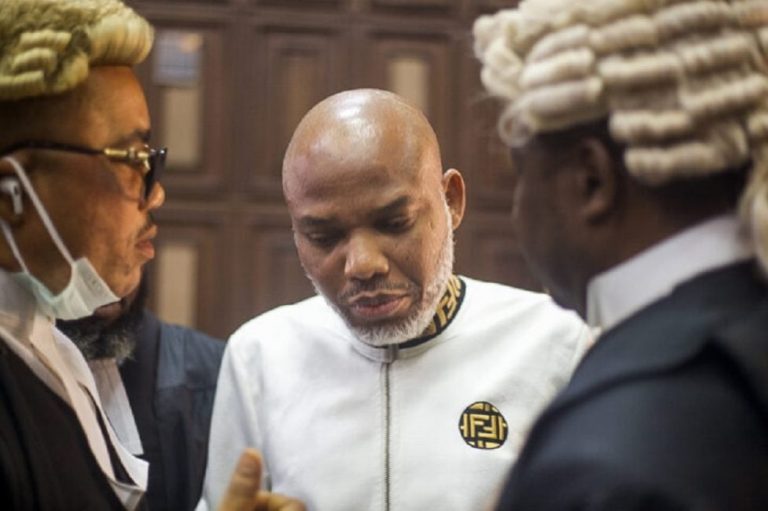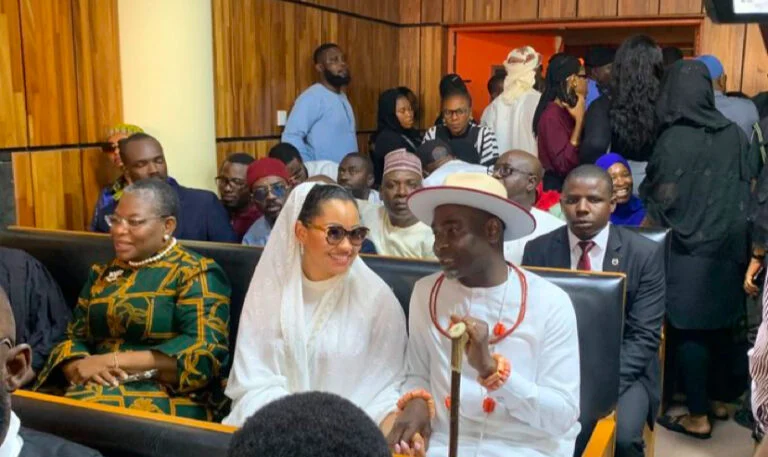A Federal High Court in Abuja has accepted into evidence a report from the Department of State Services which allegedly associates Nnamdi Kanu, leader of the proscribed Indigenous People of Biafra, with the deaths of 186 police officers and the destruction of 164 police stations during the #EndSARS protests.
Justice James Omotoso admitted the report during Thursday’s resumed hearing in Kanu’s terrorism trial.
The prosecuting counsel, Adegboyega Awomolo (SAN), presented the report through the fifth prosecution witness, identified as Mr EEE for security reasons.
EEE, a DSS operative, said he was part of a team deployed across the South-East and other regions to gather intelligence and compile reports on the violence that followed the #EndSARS movement.
“I know the defendant through the media. I have never met him face-to-face,” the witness stated.
He explained that his role involved collecting records of property damage and deaths of security personnel allegedly provoked by Kanu’s statements.
The court accepted a damage assessment report, death certificates of some officers, and a certificate of compliance, all presented by Awomolo through the witness.
While the defence contested the admissibility of the documents, arguments on the matter were deferred.
The witness said the unrest led to 186 police deaths, 37 military casualties, and 10 DSS operatives killed. He added that 164 police stations and nine INEC facilities were destroyed in 17 states including Lagos, Abia, Anambra, Cross River, Delta, Ebonyi, and Rivers, allegedly due to Kanu’s inciting remarks.
During cross-examination, defence counsel Dr Onyechi Ikpeazu (SAN) questioned the reliability of the report and the justification for linking Kanu to the events.
“You were not part of the investigation into the defendant himself, correct?” Ikpeazu asked.
“I was tasked to investigate the destruction of public property based on the statements of the defendant. He gave instructions to IPOB members to kill officers,” EEE replied.
Ikpeazu queried whether Kanu’s remarks were tied directly to the #EndSARS protests or IPOB actions and also asked if activist Aisha Yesufu was investigated.
“My assignment was not to investigate Biafra or individuals like Aisha Yesufu but to assess damage from the #EndSARS protest,” the witness responded.
He noted that although the protests stemmed from “organic issues like police brutality,” they were “hijacked by subversive elements” who stirred violence against the state.
When asked for specifics, the witness acknowledged he could not pinpoint any section in the report that directly linked the deaths to IPOB members. “It is a voluminous document. There is no single caption that links deaths directly to IPOB on any page,” he said.
Ikpeazu pointed out flaws in the report, such as missing photo dates, lack of signatures, and absent information about the deceased and the medical examiners. The witness admitted the report was certified in his capacity as secretary, but he did not personally sign it.
“You did not sign this report. In fact, none of the photographs show the dates they were taken,” Ikpeazu said, implying the report was prepared after the trial began, a claim the witness denied.
Prosecuting counsel Chief Awomolo (SAN) stated that evidence had been successfully presented and urged the court to consider the prosecution’s prayers.
Kanu’s lawyer, Kanu Agabi (SAN), entered a no-case submission and indicated they would proceed to make their case.
The court gave both parties 14 days to file written arguments on the no-case submission and two additional days for legal replies.
Justice Omotoso scheduled July 18 for the adoption of the no-case submission.
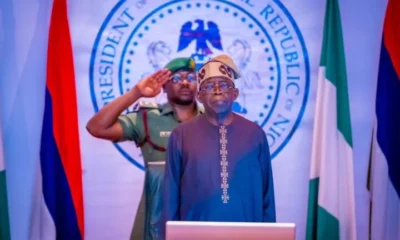
 BIG STORY4 days ago
BIG STORY4 days ago
 BIG STORY3 days ago
BIG STORY3 days ago
 BIG STORY3 days ago
BIG STORY3 days ago
 BIG STORY3 days ago
BIG STORY3 days ago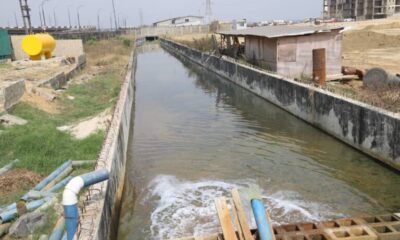
 BIG STORY3 days ago
BIG STORY3 days ago
 BIG STORY5 days ago
BIG STORY5 days ago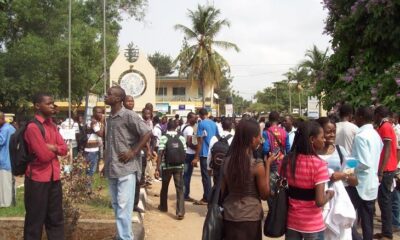
 BIG STORY2 days ago
BIG STORY2 days ago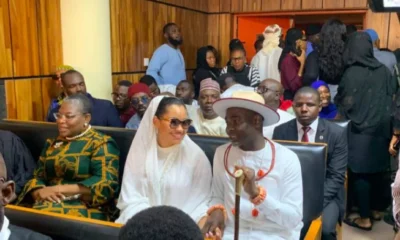
 BIG STORY20 hours ago
BIG STORY20 hours ago







